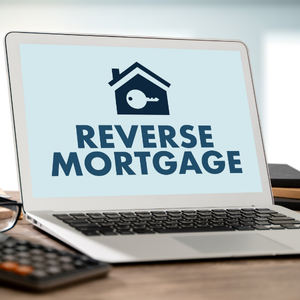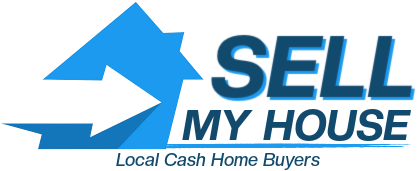
Seattle’s real estate market is complicated, especially for homeowners considering reverse mortgage sales. Our guide explains reverse mortgages and how the Multiple Listing Service (MLS) is crucial to the process. Our thorough analysis will help sellers understand eligibility, requirements, and listing optimization strategies. Homeowners can make informed decisions to meet their financial goals and ensure a smooth transaction with expert advice tailored to Seattle’s market. Learn how to maximize reverse mortgage benefits and how Sell My House can help.
Brief Overview
Reverse mortgages affect Seattle home sales, so understanding them is crucial. Property owners must understand loan balances and plan sales around local market conditions. Manage mortgage terms, consult experienced agents, and prepare properties for buyers. Seniors seeking to tap into home equity can benefit from reverse mortgages, but eligibility and loan types, such as HECMs and proprietary loans, must be carefully considered. Homeowners can sell their homes and reach financial goals with expert advice and planning. Consider working with We Buy Houses in Seattle and its surrounding cities for a smooth sale and a fair offer.
Key Highlights
- In high-value places like Seattle, the ability to turn home equity into cash, like with reverse mortgages, is very useful.
- HECMs are the most common reverse mortgages. They are insured by the FHA, which provides additional security.
- Homeowners must be at least 62 years old to qualify, and the property must be their primary residence.
- With selling, reverse mortgages require an understanding of the loan balances and communicating with the lenders.
- For a successful home sale, the experience of an expert is needed to ease the intricacies of reverse mortgages in Seattle.
How to Sell a Home with a Reverse Mortgage in Seattle

Selling a home with a reverse mortgage can be complex in a busy market like Seattle. For Seattle homeowners, understanding the nuances of a reverse mortgage loan and its implications when selling your home will help you process reverse mortgages effectively. There are loan balances and specifics of the King County real estate market, so understanding this topic will allow for strategic planning for each step. Before listing your home, understanding what you can do regarding your reverse mortgage will save you time and money. Collaborating with investor home buyers in Washington and the surrounding areas will streamline the process and help you effectively tap into the equity of your home.
Understanding How Reverse Mortgages Impact Home Sales
Understanding the difference between the loan balance of a reverse mortgage and the market value of a home is essential for homeowners selling reverse-mortgaged homes in Seattle. Reverse mortgages do not work like regular mortgages, as they do not get paid on a monthly basis, and thus the balance of the loan increases over time and equity in the home decreases. They also need to ensure that the remaining balance is paid for out of the sale proceeds, and so the seller must remain in contact with the lender to know how much is currently owed on the mortgage so that they can avoid surprises within and plan for the ever-changing Seattle market.
Besides the financial balance, local market conditions and regulations can influence how quickly a home sells and at what price. In Seattle, seniors will benefit most from value maximization alignment at the sale stage. Homeowners selling a reverse-mortgaged home will have the most equity if they complete a thorough market analysis and work with a realtor. Having a clear understanding of the available equity is beneficial for the homeowner in making the most strategic decisions.
Steps to Take Before Selling a Home with a Reverse Mortgage
The first step in selling a home with a reverse mortgage in Seattle is gathering all relevant paperwork, including the terms of the loan and any fees or penalties pertaining to early loan payoff. This is a good time to consult a Seattle real estate agent who understands reverse mortgages to help you analyze the current market and account for competitive pricing, which will also ensure the loan balance is covered in full. Knowing the market and selling at the right time will help avoid surprises while enhancing proceeds for your reverse mortgage.
In the Seattle market, you will want to budget for any necessary repairs or updates because buyers in Seattle tend to like homes that do not require repairs before moving in. Improving any repairs needed to the essential systems in the home, landscaping, and overall aesthetics will help increase your mortgage balance, and therefore, the enhancement will improve your overall leverage. This will ensure that the balance payoff of your reverse mortgage works with your sale timeline, which will improve profitability.
For Seattle home sellers, especially those with reverse mortgages, it’s important to consider financial obligations and market dynamics. The following sales strategies are essential:
- Hire a reverse mortgage-savvy local realtor. They understand and comply with reverse mortgages.
- For a smooth sale, perform a pre-listing inspection to identify and fix issues that may deter buyers or lower the home’s value.
- Consider local trends and buyer preferences when staging the home to maximize its value, which can affect the sale price.
- Price is competitively based on market analysis and Seattle’s unique real estate environment.
- Using digital and traditional platforms, market the home to the right demographic.
- Prepare potential buyers and avoid transaction delays by understanding reverse mortgage settlement timelines and processes.
- Keep the reverse mortgage agreement and home improvement receipts handy to build buyer confidence.
Reverse mortgage home sellers in Seattle can maximize their chances of a successful and profitable sale by following these steps, ensuring a personal and financial transition. Adequate home sale preparation streamlines the process for all parties.
Understanding Reverse Mortgages and HECMs

Reverse mortgages allow seniors to tap into their home equity without needing to sell their homes. For seniors, especially retirees living in Seattle and other parts of King County, the ever-rising demand for real estate in the area provides them with more options. For homeowners, understanding the parts of reverse mortgages is essential, especially the acronym HECM loans. Most seniors in Washington should learn the different types of reverse mortgages and the ways they work. This helps in understanding the efficient utilization of home equity in retirement in the form of additional cash flow and home equity conversion.
What Is a Reverse Mortgage, and How Does It Work?
Reverse mortgages enable certain homeowners, typically seniors aged 62 and above, to access their home equity and receive monthly cash payments without a traditional mortgage payment. The loan amount, interest, and equity accessed will be due once they move permanently, sell their home, or die. Reverse mortgages are beneficial to retirees and seniors for meeting cash demands for healthcare, other personal needs, and retirement. In Seattle and King County, where real estate prices are high, providing cash demands is a personal goal. Most seniors and retirees will qualify for a reverse mortgage, which is called a Home Equity Conversion Mortgage (HECM) and is federally insured. This allows seniors and retirees to access cash with a guarantee to lenders.
Most reverse mortgage guidelines are not overly complex for the end user, thanks to the flexibility of lenders and mortgage brokers in your area. Southwestern Washington, which this site serves, allows the cash demands to be covered by a reverse mortgage due to future spending. This is coupled with the Washington guidelines. These cash flows can make retirement very practical and financially stress-free. This applies to a future sale of a home, where interest will be charged without the possibility of payment on the loan. Homeowners who are considering selling their home and whose home is reverse mortgaged should know that the loan interest continues to accrue and the loan remains unpaid.
| Type of Reverse Mortgage | Key Features | Pros and Cons | Best Suited For |
|---|---|---|---|
| HECM (Home Equity Conversion Mortgage) | Federal insurance, regulated, flexible withdrawal options | Pros: Security and flexibility; Cons: Higher fees | Seniors seeking federal protection and various payout options |
| Proprietary Reverse Mortgage | Private loans, higher limits, not federally insured | Pros: Suitable for high-value homes; Cons: Less protection | Homeowners with properties exceeding FHA limits |
| Single-purpose Reverse Mortgage | Low-cost, specific use cases offered by non-profits | Pros: Low fees and interest; Cons: Limited purpose | Seniors needing funds for specific essential expenses |
This table describes Washington homeowners’ main reverse mortgage options and their usefulness for different financial strategies.
Investigating Reverse Mortgages
Seattle homeowners engage with any number of financial objectives concerning mortgages, most of which are Reverse Mortgages. The most common example, widely applicable, is the Home Equity Conversion Mortgage (HECM). On the other end of the deal, equity is available to homeowners with higher home values (those exceeding FHA limits) via proprietary reverse mortgages. These privately insured reverse mortgages offer greater flexibility, albeit with proprietary conditions that differ from those of federally insured reverse mortgages (HECMs). Lack of understanding of proprietary conditions can be problematic in high-value real estate areas, such as King County.
Single-purpose reverse mortgages are another option. They are government- or non-profit-sponsored and provide funds for specific, limited, outlined expenses such as home equity repairs or property taxes. This is ideal for homeowners wanting to maintain or improve the value of their home before selling. The most appropriate option will be discovered with the assistance of an experienced reverse mortgage professional and will be aligned with specific financial and long-term objectives concerning retirement.
Prepare Your Home for Sale with a Reverse Mortgage

For homeowners in Seattle, understanding and acquiring the reverse mortgage loan criteria might be desirable. Many also ask, “Can Someone Take Over My Mortgage? ”especially when considering selling a home with an existing reverse mortgage. In Seattle and the rest of King County, understanding these lending rules in the competitive real estate market is essential. A reverse mortgage, including Home Equity Conversion Mortgages (HECM), permits seniors to tap into the equity in their home without immediate repayment. Age, residence, and property type determine most qualifications, making it an attractive option for homeowners seeking financial flexibility. Most importantly, Seattle seniors who want to use their home equity will understand who qualifies and the necessary requirements.
Who Can Qualify for a Reverse Mortgage Loan?
For a reverse mortgage loan in Seattle, qualifications are set for both the borrower and the lender. Age is the principal requirement: the borrower must be 62 years of age or older, and the principal residence must be a home. Qualifying residences include single-family homes, some multi-family homes, and FHA-approved condos as long as the homes are in good condition and meet the appraisal threshold.
While these financial obligations do help to avoid default and thus help maintain long-term stability in the equity reserve or reverse mortgage Seattle borrowers qualify for, they also help prevent borrowers from underperforming and defaulting on the equity reserve loan. Passing the equity reserve loan criteria in Seattle’s ordered cutthroat housing market is why establishing a professional working relationship with a mortgage broker or lender would help achieve the right balance of home equity release and securing the borrower’s financial future.
Selling a home with a reverse mortgage in Seattle, WA, is unique, but with proper understanding and professional guidance, it can be a smooth and beneficial process. As Seattle’s market changes, reverse mortgage insights are essential for maximizing returns. Expert agents familiar with MLS listings and reverse mortgages will streamline the transaction and ensure legal compliance. Staying informed and proactive will help your real estate venture succeed. Please contact Sell My House for expert advice throughout the process.
Are you looking to sell a home with a reverse mortgage in Seattle, WA? Whether you need to sell quickly, avoid costly repairs, or prefer a hassle-free process, Sell My House is here to help. We provide fair cash offers, handle all the details, and ensure a smooth, stress-free sale. Have questions about how selling a home with a reverse mortgage works? Call us at (253) 289-3773 for a no-obligation offer and expert guidance. Get started today!
FAQs
How does a reverse mortgage work?
Elderly homeowners can use a reverse mortgage to cash out some of their home equity. A traditional mortgage requires monthly payments, but this loan is repaid when the homeowner sells, moves out, or dies.
How does selling a home with a reverse mortgage impact the sales process?
In reverse mortgage sales, the loan balance affects the sale proceeds. As the sale price must cover the loan balance, the seller’s equity may be affected.
Who can get a Seattle reverse mortgage?
To get a reverse mortgage in Seattle, homeowners must be 62, live in the home as their primary residence, and meet certain requirements. Paying homeowners’ insurance and property taxes is crucial.
Why is expert advice important when selling a home with a reverse mortgage in Seattle?
Mortgage and real estate experts help homeowners navigate market dynamics and reverse mortgage intricacies for a smooth sale. Optimizing listing strategies and financial results in Seattle’s competitive market requires this guidance.
Are there different types of reverse mortgages?
You can get HECMs or proprietary reverse mortgages. Common HECMs are FHA-insured, while proprietary mortgages are privately insured and may offer higher borrowing limits for high-value homes.
Helpful Seattle Blog Articles
- Guide To Selling A Tenant-occupied House In Seattle, WA
- Selling A Water-damaged House In Seattle, Washington
- Expert Tips For Selling Your Inherited House In Seattle, WA
- Selling A Seattle, WA, Home With Foundation Issues Successfully
- Comprehensive Guide To Selling Your Seattle, WA, Home By Owner
- Remove a Name from a Deed in Seattle, WA
- Is There a Way to Avoid Capital Gains Tax in Seattle, WA?
- Does a Seller Pay Closing Costs in Seattle, WA? Guide for Sellers
- Your Guide to Selling an Investment Property in Seattle, WA
- Selling Home with Reverse Mortgage in Seattle, WA
- How Long to Live in a House Before Selling in Seattle, WA

